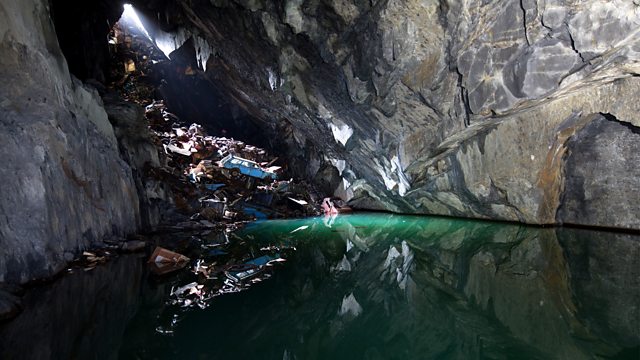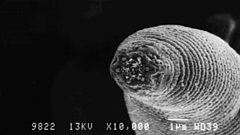Underground: How Deep Can Life Survive?
The infrastructure below our cities and life two miles below the earth’s surface. Exploring the mysteries of the biosphere below the earth’s surface.
This week, The Forum delves into the subterranean world of life underground – from the forgotten tunnels and catacombs of our cities to life found in the stifling sunless world two miles below the Earth’s surface. Might humans one day retreat underground if living above ground becomes too tough? Bridget Kendall with Social Geographer Dr. Bradley L. Garrett, Zoologist Dr. Gaetan Borgonie and Isotope Geochemist Professor Barbara Sherwood Lollar.
Photo: Car Quarry image (credit: Bradley L. Garrett)
Last on
Clip
-
![]()
Finding the 'worm from hell'
Duration: 00:50
Bradley L. Garrett
Dr. Bradley L. Garrett is a lecturer in Social Geography at the University of Southampton in the UK with a passion for photographing off- limit places and exploring urban underground spaces. His recent book: Global Undergrounds Exploring Cities Within (co-edited) collects the stories of subterranean sites around the world. With their tunnels, caverns and bunkers they not only sustain the cities above them, but also the lives of people who are increasingly moving into them. He says that if the 20th century was the age of the skyscraper then the 21st century is probably the age of the tunnel.
Gaetan Borgonie
Barbara Sherwood Lollar
Broadcasts
- Mon 5 Sep 2016 01:06GMT91�ȱ� World Service except Americas and the Caribbean, Australasia & News Internet
- Mon 5 Sep 2016 04:06GMT91�ȱ� World Service Americas and the Caribbean
- Tue 6 Sep 2016 08:06GMT91�ȱ� World Service except News Internet
- Tue 6 Sep 2016 23:06GMT91�ȱ� World Service except News Internet
- Wed 7 Sep 2016 01:06GMT91�ȱ� World Service Australasia
Podcast
-
![]()
The Forum
The programme that explains the present by exploring the past



